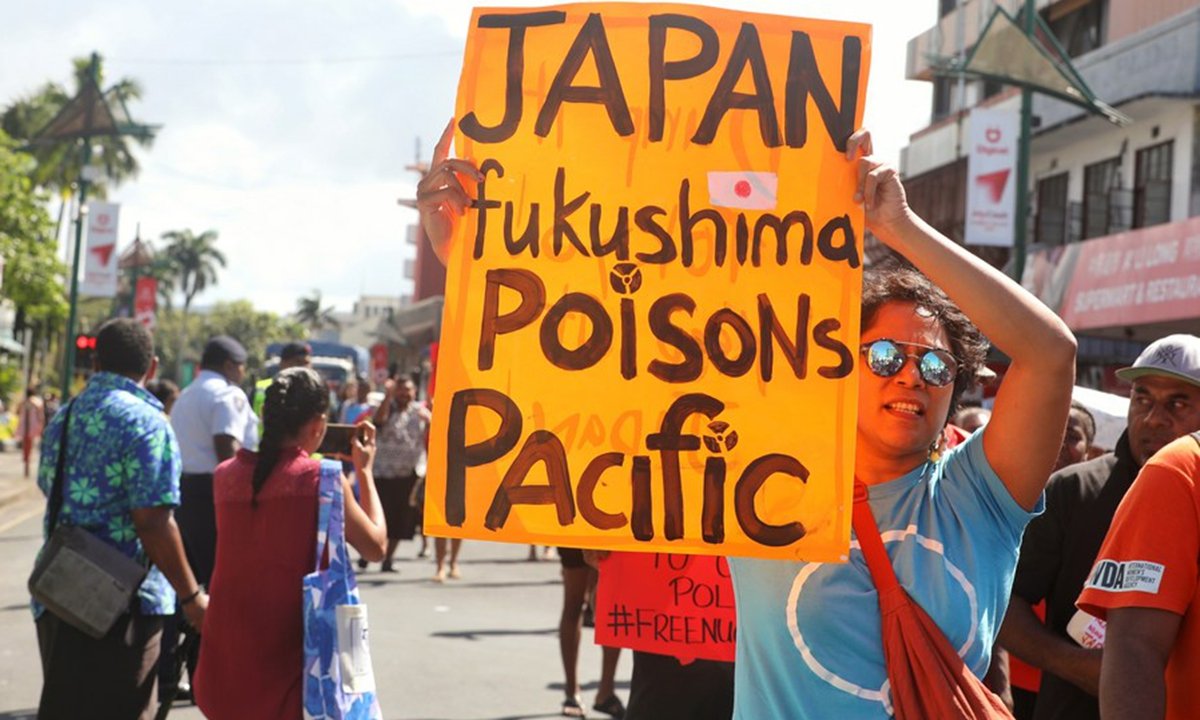Japan’s Controversial Nuclear Wastewater Dumping Draws Global Ire
The recent decision by the Japanese government to release nuclear-contaminated wastewater into the sea has ignited a storm of criticism both domestically and internationally. Critics argue that Japan’s move is not only a potential environmental catastrophe but also a calculated public relations tactic to divert attention from the core issue.
In the aftermath of the decision, there has been a noticeable uptick in media attention on growing “anti-Japan” sentiments in China. The U.S.-led Western media has amplified these sentiments, citing incidents involving nuisance calls to Japanese businesses and authorities. These accounts, however, offer a narrow and potentially skewed perspective of the broader Chinese reaction.
Chinese experts have stated that while certain misguided actions by individuals are neither endorsed nor encouraged, the larger sentiment remains focused on the potential risks posed by the wastewater release. They argue that Japan’s actions could endanger global health and environment. The suggestion that Japan might be committing “environmental terrorism” highlights the depth of concern.
Wang Wenbin, the spokesperson for the Chinese Foreign Ministry, clarified that China’s primary interest is in the protection of its citizens and the environment. Responding to reports about the safety of Japanese nationals in China, Wang assured that the rights and safety of all foreigners in China are protected under the law.
Concerns aren’t merely limited to individual actions. There have been reports, such as those from Reuters, Kyodo News, and BBC, highlighting incidents believed to be backlash against Japan’s decision. For instance, there have been reports of harassing calls believed to be from China and incidents involving Japanese schools in Qingdao and Suzhou.
However, observers emphasize that these incidents, while regrettable, represent the actions of a minority and are not reflective of mainstream Chinese opinion. The majority remain concerned about the potential fallout from the wastewater release rather than harboring anti-Japanese sentiments.
Adding to the complexity, some claims have been debunked as false rumors. For instance, Xi’an police dismissed rumors about Japanese cars being targeted.
Liu Jiangyong, a vice dean at Tsinghua University, warned against Japan’s potential attempts to use these incidents to portray itself as the victim. According to him, Japan’s aim might be to distract the international community from the core issue: the wastewater release’s potential environmental impact. This sentiment was echoed by the Global Times, which reported on Japan’s substantial PR efforts overseas.
Interestingly, while Japan has been highlighting the concerns arising from China, Chinese representatives have reported harassment in Japan. Wu Jianghao, the Chinese ambassador in Japan, mentioned that Chinese embassies and consulates in Japan have received numerous disruptive calls, hampering their operations.
The international response to Japan’s wastewater dumping has been varied. Western media has been accused of double standards. While some have criticized China’s suspension of Japanese aquatic products, others have questioned the silence of those who usually champion environmental protection and human rights.
Germany’s Frankfurter Allgemeine Zeitung (FAZ), for instance, labeled China’s criticism as hypocritical. Liu Jiangyong countered such stances by posing a hypothetical: Would European nations support a European country dumping nuclear-contaminated wastewater into shared waters?
Additionally, there’s evidence of significant domestic opposition in Japan. Prime Minister Fumio Kishida’s approval rating plummeted to 26%, and a poll indicated strong concern among the Japanese populace about the wastewater decision’s potential impact on Japan’s international image.
Chiyo Oda, from the Japanese environmental NGO “Stop polluting the oceans!”, voiced the concerns of many Fukushima residents. She highlighted that despite the widespread opposition from Pacific islands nations and other coastal countries, Japan’s focus seems primarily on the reactions from China and South Korea. Her sentiment is to unite with more nations in opposition to the wastewater dumping.
The international response is growing. Denise Yoon from the Korea Federation of Environmental Movement revealed plans for global rallies against Japan’s decision. These are set to take place in major cities worldwide, coinciding with the UN General Assembly.
In summary, Japan’s decision to release nuclear-contaminated wastewater into the sea has stirred a whirlwind of controversy. While some isolated incidents have raised concerns about anti-Japanese sentiments, the broader international focus remains firmly on the potential environmental repercussions of Japan’s actions.
Read More:
